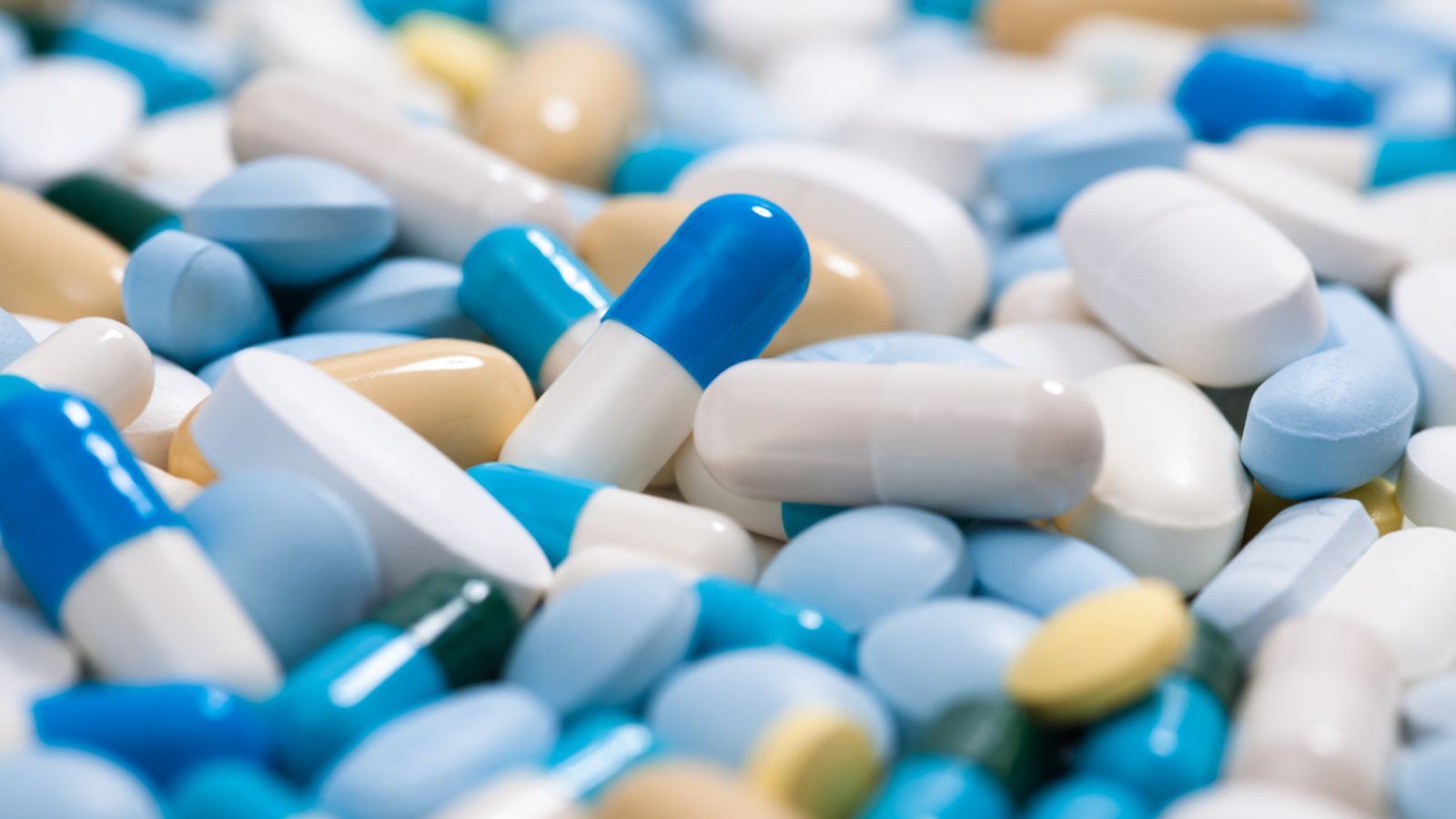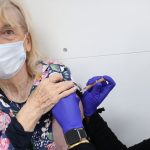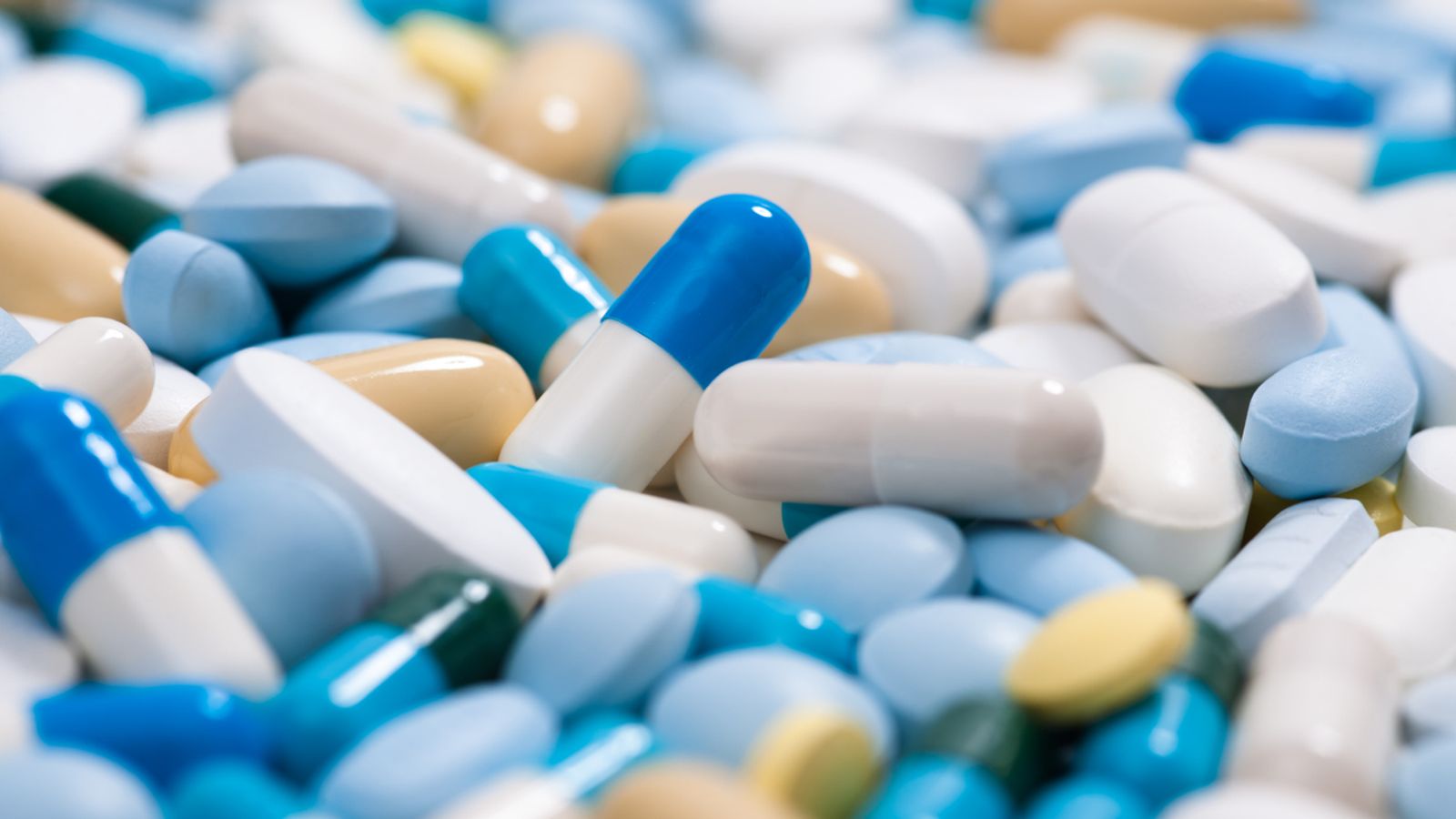A “game-changing” antibiotic could save millions of lives worldwide from drug-resistant superbugs, a new study suggests.
The breakthrough, made by UK scientists, involved the development of new versions of the molecule teixobactin, which is thought to be capable of killing bacteria without damaging the tissue of the mammals it was tested on.
A team of researchers was able to use it to successfully eradicate methicillin-resistant Staphylococcus aureus – a so-called superbug known as MRSA, which is resistant to several widely used antibiotics – in a study on mice.
Read more: UK unveils plans to fight threat of ‘antibiotic apocalypse’
Teixobactin was first hailed as a “game-changing” antibiotic in 2015, but the new project developed a “synthetic” classes of the drug, according to scientists.
Because the synthetic versions can be kept at room temperature global distribution of the drug is much easier.
In 2019, more than 1.2 million people died from antibiotic-resistant bacterial infections, according to a January 2021 study in The Lancet.
Prince Philip’s Service of Thanksgiving will be personal tribute from the Queen to her husband
Falklands War veterans still suffering as the conflict fades from the public’s memory
Another P&O ferry ‘Pride of Kent’ being detained after failing inspection
Global health officials have repeatedly warned about the rise of drug-resistant bacteria and other microbes due to the misuse and overuse of antibiotics, which encourages microorganisms to evolve into “superbugs”.
However, future patients could be treated with just a single daily dose of teixobactin for systemic life-threatening resistant bacterial infections.
Cost of materials reduced 2,000 times
Those leading the project, which was delivered in association with the University of Lincoln, also hope the tests may pave the way for the drug to be produced inexpensively on a large scale.
By swapping certain amino acids on the molecule for cheaper alternatives, they said the cost of materials has been reduced more than 2,000 times.
Lead researcher Dr Ishwar Singh said the breakthrough was a significant step towards unlocking the full medical potential of teixobactin to tackle antimicrobial resistance (AMR).
“Our ultimate goal is to have a number of viable drugs from our modular synthetic teixobactin platform which can be used as a ‘last line of defence’ against superbugs to save lives currently lost due to AMR,” Dr Singh said.
Dr Phil Packer, from Innovate UK, the agency which delivered the latest project, said the results had been “excellent”.
Dr Packer said new classes of antibiotics were especially needed to tackle AMR because existing molecules were already familiar to bacteria, making resistance development more likely.
“We are delighted with results, which have validated synthetic teixobactin’s promise to tackle resistant bacterial infections when currently used antibiotics fail. We look forward to following this journey closely in future,” he said.
Health secretary hails ‘innovation’
Health Secretary Sajid Javid said: “It is fantastic to see such innovative work like this happening in the UK – another clear example of this country being at the forefront of scientific advancements which can benefit people across the world.”
An AMR review commissioned by the UK government has predicted that by 2050 an extra 10 million people will succumb to drug-resistant infections each year.
COVID is also thought to be speeding up the global threat of antimicrobial resistance, meaning the development of new antibiotics that can be used as a last resort when other drugs fail is crucial, scientists said.



































